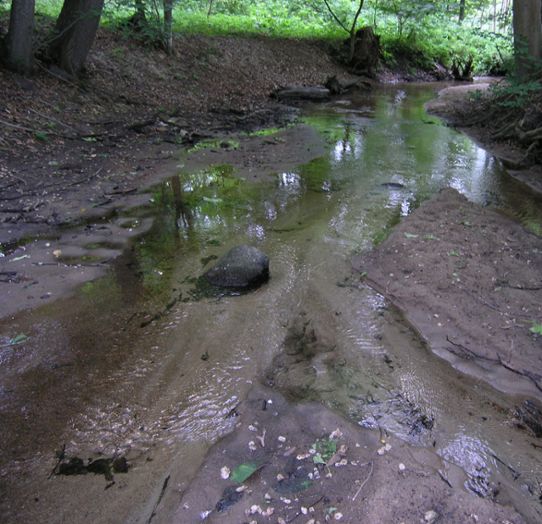The county administrative board is the public authority in Sweden that is ultimately responsible for the supervision of water extraction. Prior to 2012, fixed water-rights judgements applied indefinitely, but in the county of Skåne this was seen as problematic for the future water supply. That is why the County Administrative Board in Skåne is making intensive efforts to ensure time limits are placed on all water-rights judgements. The first judgement pertaining to temporary permits for surface water extraction was delivered in 2012 and the permit is valid for 30 years. A reassessment will then take place that takes into account the circumstances applying at that time. In terms of groundwater extraction, the first permit with a time limit was issued at the beginning of 2013 and this is also valid for 30 years.

Water and climate change
Skåne has a typical agricultural landscape, with both land and climate being appropriate for water-intensive vegetable cultivation. Higher temperatures as a result of climate change extend the growing season and increase evaporation, which will make the ground drier than it was in the past. In turn, this leads to more water having to be taken from nature to irrigate arable land. The situation may also be worsened by longer dry periods. There is then an increased risk that nature’s water resources are overloaded by excessive water extraction, which can lead to both wells and watercourses running dry.
It is not just human activities that are affected, existing ecosystems are also at risk of being damaged due to the lower inflow harming the water quality. To protect the quality of water in watercourses and wells that are running dry, the county administrative board has the right to stop illicit water extraction, but this is not a sustainable solution. Water is needed within both agriculture and industry so that these enterprises are able to function and it is also in the interests of the county administrative board to maintain a well-functioning commercial sector.
Time limits a solution
As a solution to one part of the problem, the County Administrative Board in Skåne has decided that temporary permits for water extraction are necessary. Groundwater formation may take on a very different shape in future, which can alter society’s environmental requirements so that they are more in line with the water use at the time. It is not just the technological developments within agriculture and industry that may have a role to play, increased knowledge of climate change and its impact on groundwater are also involved. The County Administrative Board in Skåne therefore saw temporary permits for water extraction as a reasonable solution to protect the county’s bodies of water. The current temporary permits run for a period of around 15–30 years, but it is the local conditions that determine the actual time.
Costs
It is the applicants themselves that pay for their application in terms of hired consultants, application fees and legal costs. The cost to applicants varies greatly depending on the scope of the services they have purchased and how complicated each case is.
Future
The goal is for all new water-rights judgements in Skåne to have a time limit, not just for private actors in the agricultural sector and industry, but also for the municipalities in the county. At the same time as time limits are being placed on water-rights judgements, the county administrative board is also attempting to exert influence so that future reassessments when permits run out can take place in a simplified manner and thus decrease the cost to the applicant.
The county administrative board has also submitted proposals to the government commission of inquiry into water activities that temporary permits should appear more clearly in the legislation. The effort to promote temporary permits is being conducted by the County Administrative Board in Skåne, but in the remedial measures within the environmental objectives, the Swedish Geological Survey has also recommended this for other counties in which there is currently substantial water extraction.
More examples of climate adaptation
This is one of many examples of climate adaptation. There are more in the collection of ideas being built up by the Swedish National Knowledge Centre for Climate Change Adaptation at the Swedish Meteorological and Hydrological Institute (SMHI). The collection of examples has the aim of sharing experiences and providing ideas to everyone who works with climate adaptation. Examples describe concrete measures and challenges in several subject areas. They show how different actors have worked to adapt their activities to the climate changes that are already being noticed today and those that we cannot prevent in the future.